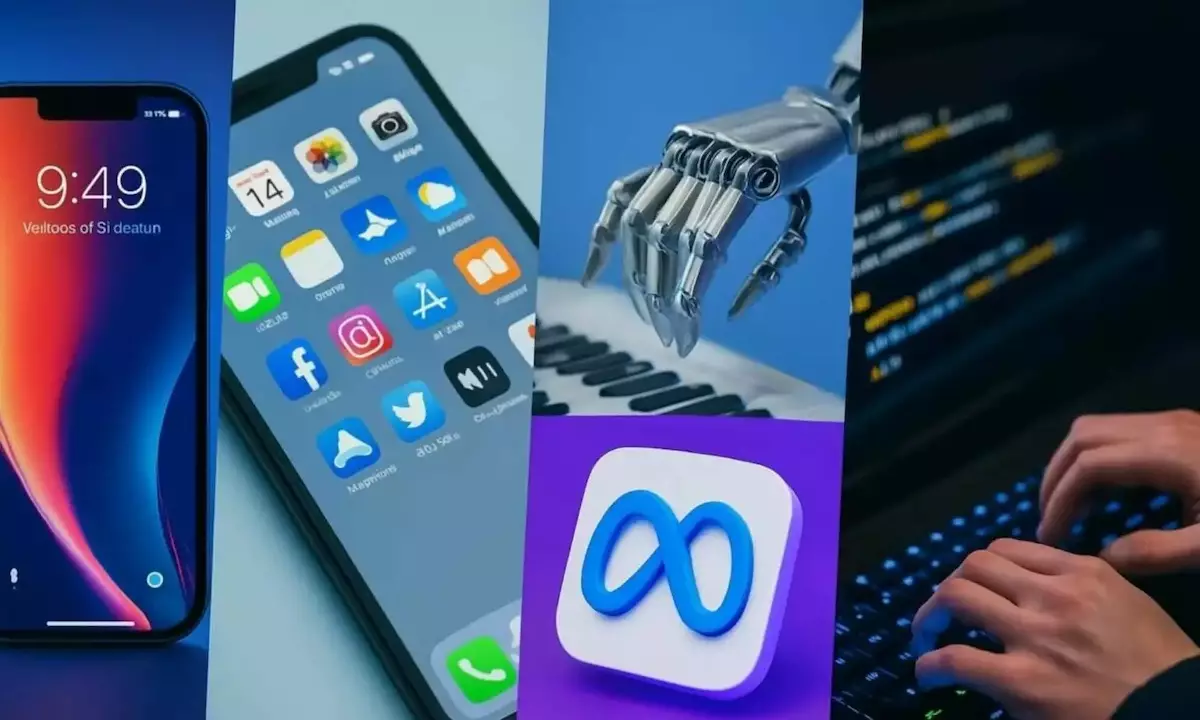If an innovative product is the spark, then effective marketing is the fuel that keeps the furnace of a successful business burning. A range of marketing tactics have long been employed by businesses to reach new consumers and drive growth, with billboards, prime-time commercials, and discount flyers just some of the countless traditional methods that have been used. However, as we have moved into the 21st century, marketing has undergone a significant and permanent transformation – our ever-expanding digital ecosystem is having a profound impact. From the widespread adoption of the internet to the recent integration of artificial intelligence, let’s take a closer look at how the digital revolution has catalyzed innovation in the marketing landscape.
Emergence of search engine optimization (SEO)
Following the launch of Google in 1998, a superior search engine algorithm was unleashed to the online world, representing a key moment in digital history. Google would quickly overtake its early rivals, establishing itself as the dominant search engine with near-monopolistic power. As the utility of Google became clearer, a new marketing technique, SEO, emerged that could take advantage of its algorithm. Through enhancing a website’s structure and content, marketing teams could elevate a site’s online presence, allowing it to appear higher up in Google search results. This, in turn, could generate greater levels of traffic to the site. SEO presented a cost-effective and highly targeted marketing approach tailor-made for a consumer market primed for further digitalization.
Optimized social media marketing
The early days of social media giants Facebook, Twitter, and Instagram, as well as long-forgotten early platforms like Friendster and Myspace, allowed people from all around the world to connect and share content in a way that had not been seen before. However, what started out as basic connectivity platforms has transformed into some of the most powerful marketing tools available today. These platforms allow hyper-targeted advertisements using personal data to target users with personalized content. Furthermore, unlike traditional ads, social media allows for real-time engagement where companies can open communication channels with consumers, answering queries, solving issues, and gaining insight into consumer preferences. The impact has been profound, allowing brands to react to changing opinions in record time. This was perhaps highlighted best in 2019, when significant fan backlash to Sonic the Hedgehog’s new look prompted filmmakers to redesign the character – a move that ultimately resulted in box office success.
Growing impact of influencers
A direct result of social media has been the emergence of influencers, who have become increasingly important elements in brand marketing campaigns. By leveraging the popularity of these influencers, who can range from A-list celebs all the way to viral meme stars, companies can expand their consumer base and consolidate brand trust. They may use influencers to promote product giveaways, offer them commission on products they endorse, or even pay them a fee to create and share content featuring a new product. Influencer marketing has been further fueled by the growth of livestreaming and short-form video content, in which influencers use platforms like TikTok and Instagram Reels to create more authentic live content for consumers.
Mobile marketing and app engagement
One of the most significant digital innovations of this century has been the invention and rapid adoption of the smartphone. Groundbreaking products like the Apple iPhone have paved the way for a whole host of powerful, portable smartphones that have allowed consumers to access the internet whenever, wherever. As smartphones have become the primary internet device, several mobile marketing techniques have swiftly emerged. Simple tools like push notifications and SMS promotions have proven effective, while the harnessing of app-based engagement has also been hugely beneficial. Businesses from grocery stores and food delivery services to streaming giants and online casinos have all developed apps to create lucrative loyalty programs. Often offering a bonus when signing up, these loyalty programs entice consumers in, gather critical data, and then use this data to deliver tailored experiences in a powerful feedback loop that boosts retention.
The power of personalization
This concept of tailored marketing reaches far beyond mobile apps, however, with a shift from the traditional one-size-fits-all approach to something more personalized being seen right across the board. Data-driven techniques continue to evolve, with every detail of our online behavior being collected and analyzed using tools like Meta Pixel and Google Analytics. This includes seemingly mundane things like the time spent on certain websites and how we engage with our social media. All this information helps marketing teams reach informed decisions regarding their campaigns based upon measurable data rather than human instinct. The result is a level of personalization to marketing and advertisements at a previously unseen scale, improving the ability of ads to successfully reach target customers while slicing the price of mass marketing campaigns.
Automated techniques with AI
The advent of artificial intelligence (AI) is the latest technological innovation that has quickly made its presence known in the marketing landscape. While it has only been a matter of years since the technology has been present in the public consciousness, it has transformed from an experimental possibility to an essential tool for many marketing companies. In our data-driven digital world, the ability to use AI to automate complex data analysis and predict consumer behavior at rapid rates is having profound effects. Marketing teams are no longer constrained by human limits, allowing highly effective personalized campaigns to be improved and developed in record time. With the technology only expected to get more sophisticated, the potential of AI in marketing is unparalleled.
There is no doubt that today’s marketing world is a far cry from that made famous by Don Draper and the rest of the Mad Men. The rapid development of new technologies and the emergence of the digital realm have allowed for mass innovation in the marketing industry, expanding the possibilities of what can be achieved. Moving forward, as the latest technology becomes more advanced than ever, expect marketing techniques to continue to evolve and improve. The fuel in the furnaces will carry on burning.


